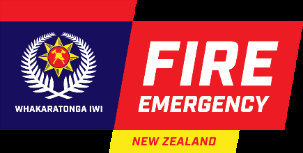
Form
FL7-FMr
Use of Fire and Emergency vehicles agreement
When to use
All Fire and Emergency New Zealand personnel and authorised non-Fire and
Emergency drivers, (see explanation after the signature block), must read and sign
this form to acknowledge acceptance of the operating requirements for Fire and
Emergency contractual and tool of trade motor vehicles.
What to do
Read al the points below, then sign and date on the next page.
Requirement
Description
1. Insurance and
Fire and Emergency:
registration
• insures and registers the motor vehicles at the time of purchase/lease
• accepts no liability for personal belongings in a Fire and Emergency motor
vehicle.
2. Fuel card use
A fuel card wil be supplied for each Fire and Emergency motor vehicle.
Requirements relating to this card are as fol ows:
• mileage must be supplied to the petrol station whenever a fuel card transaction
is undertaken
• the fuel card must only be used for purchasing fuel and oil, and only for the
vehicle to which it has been al ocated.
See
Fuel card policy (FL1-5 POPa) for more details.
Note: Fuel card usage wil be audited.
3. Security
Motor vehicles must be locked when parked, and in no circumstances are keys to
be left in unattended vehicles.
4. Traffic offences, parking
Any such offences and fines are the responsibility of the offending driver. Fire and
fines and speed camera
Emergency wil accept no responsibility, financial or otherwise.
fines
5. Driving under the
If loss, damage and/or injury is caused whilst a Fire and Emergency vehicle is being
influence of intoxicating
driven by a member of our personnel (or any person permitted to use the vehicle
liquor and/or drugs
by them) whilst under the influence of intoxicating liquor and/or drugs, we wil not
be responsible for any:
• loss or damage liability
• compensation for damage and/or injury
occurring during, or as a result of, such use.
under the Official Information Act 1982
The person to whom the vehicle is al ocated is responsible for al costs and
damages associated with any such actions.
In addition, Fire and Emergency may withdraw a person's entitlement to a vehicle
in the event that they, or any person permitted to use the vehicle by them, are
convicted for operating a vehicle under the influence of intoxicating liquor and/or
drugs.
6. Accessories
No accessories are to be added to the motor vehicle after purchase without the
approval of the National Manager Fleet and potential adjustment to the salary
sacrifice.
Released
14 June 2021
1
Form - Use of Fire and Emergency vehicles
Requirement
Description
7. Modifications
No modifications are allowed to motor vehicles without the approval of the
National Manager Fleet.
8. Accidents
Al accidents must be reported as soon as possible. If a tool of trade or pool vehicle
is damaged outside the realms of Fire and Emergency business, the employee may 1982
be liable to pay the excess under the insurance policy. This wil be determined on a
case by case basis.
Note: Repeated accidents may result in access to Fire and Emergency vehicles
being removed or restricted in the future.
Act
9. Fringe benefit tax
Drivers of contractual vehicles and drivers of tool of trade with limited private use
vehicles are required to complete and submit a vehicle log sheet monthly in
accordance with the procedure published on the Portal “Complete vehicle Log
sheet”
(https://portal.fireandemergency.nz/how-do-i/purchases-contracts-and-
claims/complete-vehicle-log-sheet/)
10. Cel phones
While the vehicle is in motion, drivers may only use a cel phone if it is set up for
hands-free operation. In no circumstance must a driver text or use any other
cel phone function while the vehicle is moving.
11. "Authorised non-Fire and An "authorised non-Fire and Emergency driver" is a person who:
Emergency drivers"
• is the husband/wife/partner or child of the person assigned the contractual
motor vehicle
Information
• is over 25 years of age, and
• holds a current New Zealand driver’s licence.
Note: Applies to contractual vehicles only.
12. Vehicle care
Drivers must keep Fire and Emergency vehicles in a clean, neat and tidy condition.
Official
the
under
Released
14 June 2021
2
Form - Use of Fire and Emergency vehicles
Please fil out and sign
Vehicle details
Check one box to show the type of vehicle
Contractual (private use)
☐
1982
Contractual (limited private use)
☐
Tool of trade – limited private use
☐
Tool of trade
☐
Act
Declaration
To be signed by the person authorised to drive the contractual or tool of trade motor
vehicle.
Important: Your signature indicates your acceptance of these conditions.
I, acknowledge that I:
• have read and agree to abide by these operating rules in relation to the use of a Fire and
Emergency motor vehicle
• have read and understood
Fire and Emergency Motor Vehicle policy (FL2-5 POP).
Information
........................................................
Signature
Date
If you are an "
authorised non-Fire and Emergency driver", indicate your relationship with the
person to whom the contractual motor vehicle is al ocated below:
Husband, wife, or defacto or civil union partner
☐ Child
☐
Who to give
Send signed forms to the National Manager Fleet for filing at NHQ.
Official
the form to
Document information
the
Owner
National Manager Fleet
Last reviewed
14 June 2021
Review period
Every second year
Record of amendments
under
Date
Brief description of amendment
July 2017
Amended for Fire and Emergency transition.
14 June 2021
Amended to add parking and title changes
Released
14 June 2021
3
